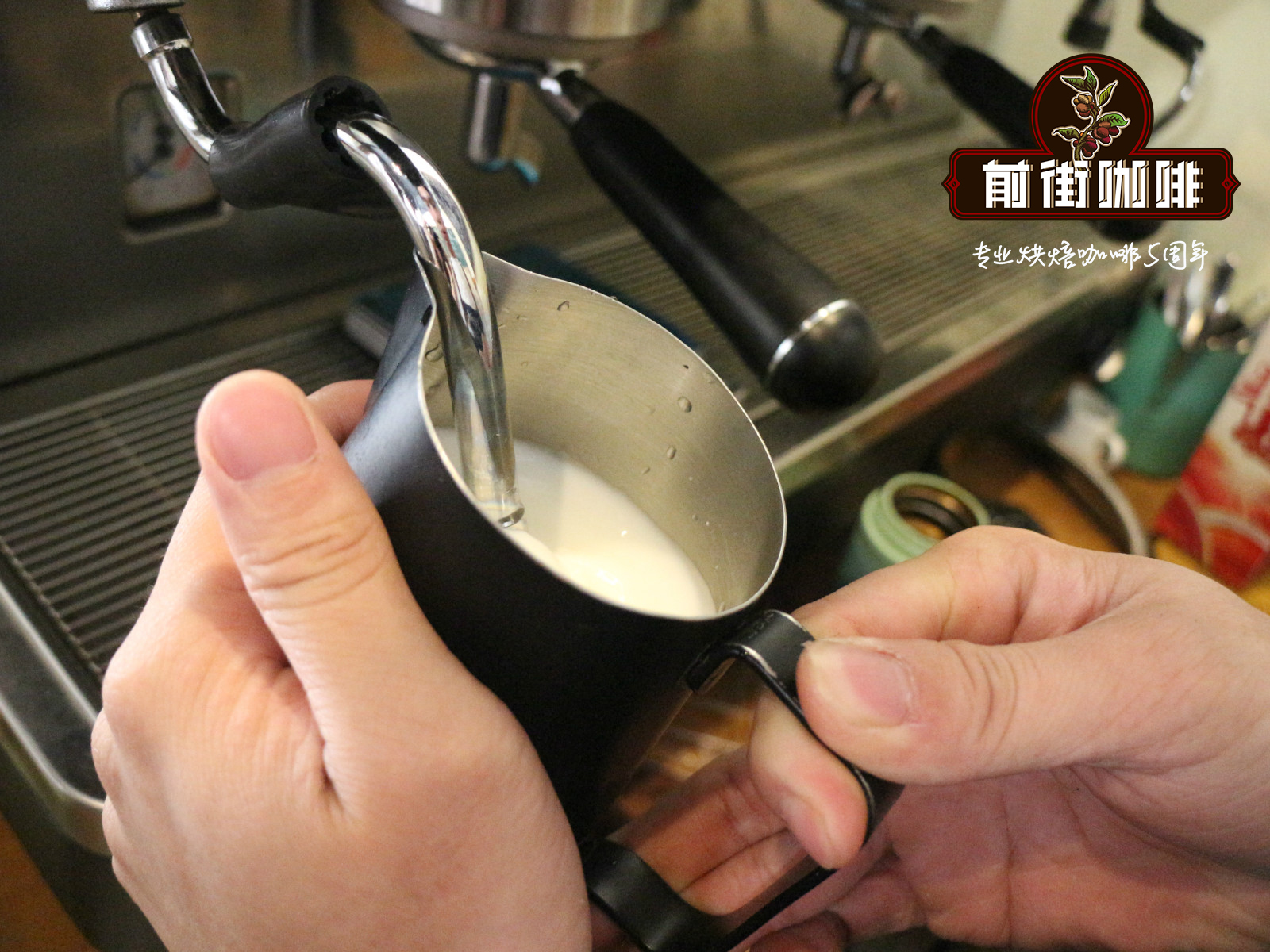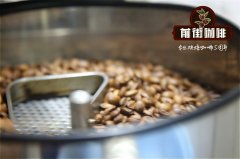Wholesale price of decaf beans _ recommendation of decaffeinated coffee brands _ is decaffeinated coffee good?

Professional coffee knowledge exchange more coffee bean information please follow the coffee workshop (Wechat official account cafe_style)
Go to work, have a meeting, chat, pick yourself up. Coffee is becoming more and more indispensable to many people in their lives. In spite of this, some people's heart palpitations, stomachaches and insomnia also deter people from caffeine. Is low-caffeine coffee beans the solution?
Are you worried about palpitations, insomnia, or opting for decaf instead because of pregnancy? Want to consume less caffeine, in fact, it has something to do with coffee bean variety, grinding particle size, baking method, cooking method, water temperature, extraction time and so on. In addition, you can also choose specially treated decaffeinated coffee. Before roasting, these coffee beans will extract caffeine to make it less than 3% of the original caffeine; according to EU standards, low-caffeinated coffee should contain no more than 0.1% of raw beans by weight.
Generally speaking, the side effects of coffee, such as palpitations and insomnia, are mostly caused by caffeine, so drinking decaffeinated coffee is less likely to have palpitations and does not affect sleep. Some studies have also pointed out that for diabetics who already have hyperglycemia or poor glucose metabolism, low caffeine may be a better choice and will not offset coffee's ability to stabilize blood sugar and aggravate diabetes due to excessive caffeine intake.
But Maria Bella, a dietitian and founder of extreme balanced Nutrition (Top Balance Nutrition), which specializes in weight control and healthy diet counseling, warns against thinking that removing caffeine removes all the side effects of coffee, and that there are still some health concerns that need to be confirmed by more research.
"many of the health concerns associated with coffee drinking, even if converted to low caffeine, can still accumulate as a result of drinking too much, such as acid reflux, affecting mineral absorption such as iron, calcium and zinc, which in turn affects bone density," Bella said.
The Harvard Medical School Family Health Guide (Harvard Medical School Family Health Guide) even points out that decaf beans have a higher risk of raising cholesterol than regular coffee.
Different studies have pointed out that caffeine has the effect of regulating blood lipids, but caffeine and caffeinol in coffee are the key to increasing the concentration of triglycerides and cholesterol in the blood, so the researchers suggest that as long as filter paper is used in general coffee, it can filter out most of the coffee oils and effectively reduce the disadvantages of rising blood lipids in drinking coffee. However, the Harvard report found that even if decaf coffee is filtered with filter paper, there is not much difference in coffee oil content, which can still lead to an increase in blood lipids.
Researchers believe it may have something to do with caffeine extraction, but it has not been confirmed. New Scientist believes that it may have something to do with the variety of caffeine beans, because Arabica beans have a higher unit price and are often found in boutique coffee, while low-caffeinated coffee beans often use Robbata beans, which contain more caffeine and white alcohol than our common Arabica beans (Arabica).
Are caffeine extraction techniques suspected of causing cancer?
At present, there are mainly three kinds of caffeine extraction techniques, and solvent extraction is widely used, but it has also caused the most discussion, because the residue of organic solvents is always worrying.
I. solvent extraction
◎ dichloromethane extraction method | does not affect the flavor of coffee, but the solvent is a possible carcinogen
Raw coffee beans are treated with high-pressure steam, adjust the water content of coffee beans, and then soak in dichloromethane solvent, so that beans fully contact with the solvent to extract caffeine.
Su Nan-Wei, a professor in the Department of Agricultural Engineering / Department of Biotechnology at National Taiwan University, said that this is the most cost-effective approach, because dichloromethane has the highest extraction efficiency of caffeine, is easy to volatilize, is not easy to remain, and has low reactivity with other substances.
However, dichloromethane is suspected to be a carcinogen and is harmful to the environment, and dichloromethane is currently banned from food processing in Taiwan; however, this practice is approved by the FDA in the United States, setting only the allowable residue limit.
Su Nanwei mentioned that if you import decaffeinated coffee beans, it is still possible to buy coffee beans extracted with dichloromethane. But he further explained that the boiling point of dichloromethane is so low that it can be volatilized when heated to about 30-40 degrees Celsius, and it is not easy to remain; coffee beans after caffeine removal will also go through the baking steps of about 160-230 degrees Celsius, which can make dichloromethane completely volatile. Therefore, although the National Cancer Institute (National Cancer Institute) regards it as a possible carcinogen, FDA still allows it to be used, setting the upper limit of allowable residues for decaffeinated beans or instant coffee as a caffeine extraction solvent at 10ppm. While most decaffeinated coffee beans are only about 1ppm, or even less, the risk of cancer is actually not high.
◎ ethyl acetate extraction method | safe and common, but slightly affect the flavor
Because of consumers' misgivings about dichloromethane, a new substitute, ethyl acetate, is produced. Ethyl acetate exists in nature, and even the content of ethyl acetate in some fruits is higher than that of low-caffeinated coffee, which is considered to be a safer choice and a common practice at present.
The boiling point of ethyl acetate is slightly higher than that of dichloromethane, about 77 degrees, and it is also volatile. The disadvantage is that ethyl acetate will affect the properties of coffee beans, and the flavor of roasted coffee beans is poor.
2. Swiss Water treatment method (Swiss Water) | safer but more expensive
No matter it is dichloromethane or ethyl acetate, there are doubts about the residual chemical solvents, so the "washing method" is developed. Making use of the water solubility of caffeine, soak the coffee beans in warm water, after caffeine and other ingredients are dissolved in the water, adsorb the caffeine in the extract with activated carbon, and then introduce the non-caffeinated extract back to the previous coffee beans. let the coffee beans reabsorb the lost ingredients, and then dehydrate and dry the coffee beans.
This approach emphasizes the use of no organic solvents to extract caffeine, making it a choice for healthy eaters. But the disadvantage is that even allowing coffee beans to reabsorb non-caffeinated extract will still affect the flavor of coffee beans; not only that, the low-caffeinated coffee produced by this method is also more expensive.
III. Supercritical / liquid carbon dioxide high pressure extraction | expensive
There are a variety of decaffeinated procedures using high-pressure carbon dioxide, which can be used not only to remove caffeine from raw coffee beans, but also to remove caffeine from roasted coffee beans.
The main principle is that under the condition of specific high pressure and temperature, carbon dioxide has good penetration properties, and the flavor or specific components of coffee beans can be extracted according to demand. coupled with pressure, temperature control and the water content of carbon dioxide used for extraction, caffeine in coffee beans can be effectively separated.
In this way, there is no problem of solvent residue at all, and the original coffee flavor can be added back to the coffee bean by multi-stage extraction technology to retain the original flavor of coffee bean. But the problem is that because of the need for special equipment, the price is very expensive and not popular.
In fact, whether it is regular coffee or decaffeinated coffee, "moderate drinking", "less cream, sugar" is not too much health risk. If you have high cholesterol or a high cardiovascular risk group, it is best to discuss with your doctor or dietitian whether you are suitable for drinking decaf.
Qianjie coffee: Guangzhou bakery, the store is small but a variety of beans, you can find a variety of unknown beans, but also provide online store services. Https://shop104210103.taobao.com
Important Notice :
前街咖啡 FrontStreet Coffee has moved to new addredd:
FrontStreet Coffee Address: 315,Donghua East Road,GuangZhou
Tel:020 38364473
- Prev

Price characteristics of decaf coffee how to make decaf coffee is it expensive to make decaf beans
Professional coffee knowledge exchange more coffee bean information please follow the coffee workshop (Wechat official account cafe_style) during pregnancy due to strict control of caffeine (daily intake of no more than 200mg), the process of buying coffee, I focus on the product micronutrient, until one day in the discussion area to see the words: I can not drink decaf coffee, because the production process is good chemistry! I found myself first.
- Next

Skr! Matcha lattes, black tea lattes, pumpkin lattes and red velvet lattes do not contain a drop of coffee
Professional coffee knowledge exchange more coffee bean information please follow the coffee workshop (Wechat official account cafe_style) in China, you order a cup of latte, Chinese baristas will default that if you make a cup of coffee latte, customers will order a cup of matcha latte without a drop of coffee in it. Yes, dear, the matcha latte doesn't contain any coffee at all. What a big misunderstanding!
Related
- Beginners will see the "Coffee pull flower" guide!
- What is the difference between ice blog purified milk and ordinary milk coffee?
- Why is the Philippines the largest producer of crops in Liberia?
- For coffee extraction, should the fine powder be retained?
- How does extracted espresso fill pressed powder? How much strength does it take to press the powder?
- How to make jasmine cold extract coffee? Is the jasmine + latte good?
- Will this little toy really make the coffee taste better? How does Lily Drip affect coffee extraction?
- Will the action of slapping the filter cup also affect coffee extraction?
- What's the difference between powder-to-water ratio and powder-to-liquid ratio?
- What is the Ethiopian local species? What does it have to do with Heirloom native species?

